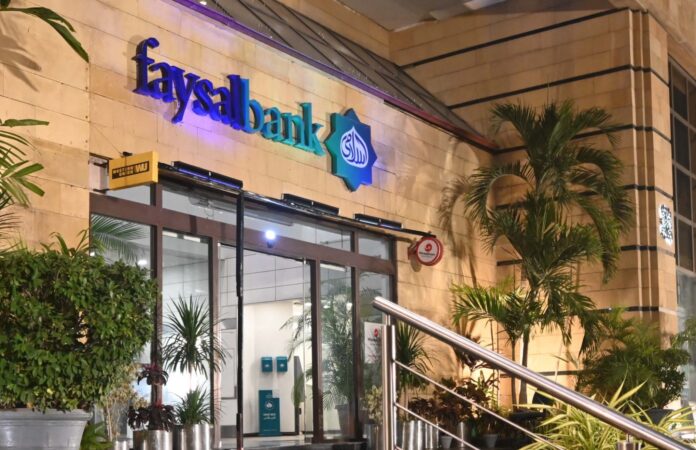ISLAMABAD: Faysal Bank Limited (FBL) announced its financial results for the fiscal year ended December 2022 (FY22) to the Pakistan Stock Exchange (PSX) on Thursday. The bank posted a net profit of Rs 11.4 billion, an increase of 37% compared to last year. The bank’s total net income came at Rs 49.5 billion, an increase of 42% year on year.
The bank posted a profit before tax of Rs 22.7 billion, increasing 65% compared to the same period last year. In spite of a super tax on the bank’s earnings, FBL still posted a record profit after tax (PAT) of Rs 11.4 billion compared to Rs 8.3 billion last year.
The bank’s Earnings per share (EPS) increased to Rs 7.54 per share as opposed to Rs 5.50 per share last year. To the delight of its shareholders, the bank also announced a Rs 1 per share dividend for the last quarter of the year. This brought the total dividend for the year to Rs 6 per share.
In the PSX on Thursday, FBL’s share price closed at Rs 23.01, down 4.8% during the day. The volume traded was 5,177,873 shares, the seventh highest during the day’s trading session.
In late December of last year, Faysal Bank completed its transition to a complete Islamic bank after the State Bank of Pakistan (SBP) issued FBL an Islamic Banking License. The license made Faysal bank the second largest full-fledged Islamic Bank in Pakistan.
History of the Bank
Named after Mohammaed bin Faisal Al Saud, a Saudi Prince and businessman, FBL started its operations in Pakistan back in 1987. Incorporated in 1994 as a public limited company, the bank continued to expand its footprint in Pakistan as a commercial bank
In 2015, FBL announced its decision to convert itself into a full fledged Islamic bank. At the time it already had the second largest Islamic banking window in Pakistan with 53 standalone branches. Faysal Bank currently has 639 branches that have all been converted to Islamic branches, making FBL the second largest full-fledged Islamic Bank in the country.
Shift to Islamic banking
On April 28th, the Federal Shariat Court (FSC) of Pakistan announced a verdict in a long-pending case, declaring the prevailing interest-based banking system in the country as against the Shariah and directed the government to facilitate all loans under an interest-free system. The court had instructed the government to make laws within five years with regard to the implementation of Islamic banking within the country.
The court had ruled that the federal government and provincial governments must amend relevant laws and issued directives that the country’s banking system should be free of interest by December 2027. Faysal Bank’s conversion from a conventional bank to a full fledged Islamic bank adds pressure on other conventional banks in the country that have appealed the court’s decision.
The banks which have appealed the FSC’s verdict include State Bank of Pakistan (SBP), National Bank of Pakistan (NBP), United Bank Limited (UBL), Allied Bank Limited (ABL), and MCB Bank.
In the inaugural SBP Governor’s report released last year, Governor Jameel Ahmed noted the growth of the Islamic Banking industry in Pakistan. “The Islamic banking industry has made significant contributions to the overall growth of the banking sector during the review period. Islamic Banking Institutions (IBIs) have shown more accelerated growth and better performance in recent years as compared to conventional banking segment, which reflects the acceptability of Islamic banking and its potential to promote financial inclusion”, read the report.
Following a change in Faysal Bank’s status, the country currently has 22 Islamic Banking Institutions (IBIs) with a branch network of 4,086 branches, including 1,463 windows spread across 129 districts that provide Shariah compliant banking services. IBIs include 6 full-fledged Islamic banking and 16 Islamic banking windows of conventional banks.
Islamic banking assets reached around 19.5% of total assets as of end June 2022, while share of deposits reached 20.5%. On a year on year basis, assets and deposits of Islamic Banking institutions were up by 41.4% and 27.0%, respectively by end June, 2022.





need a job